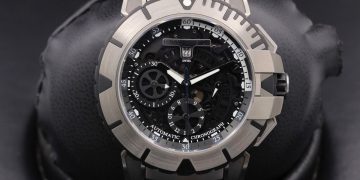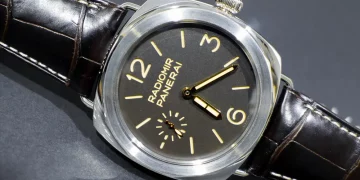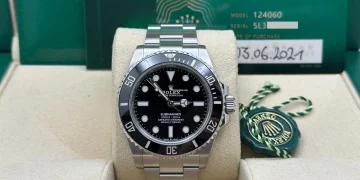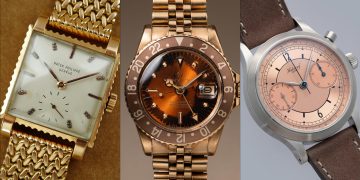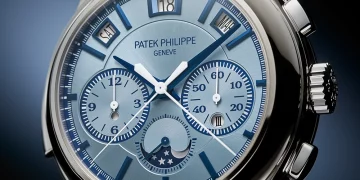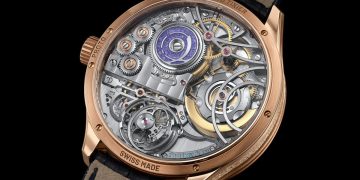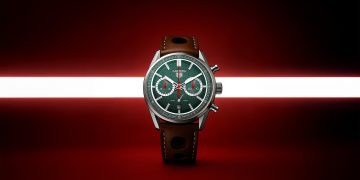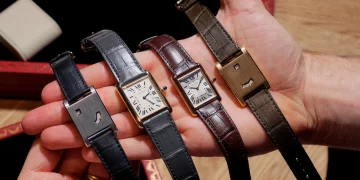Watchmaking is an art, a science, and a tradition that has been perfected over centuries. From the intricate movements that power mechanical watches to the highly detailed craftsmanship that defines luxury timepieces, watchmaking has long been synonymous with precision, skill, and artistry. However, in recent years, the introduction of automated production methods has begun to reshape various aspects of the industry. This raises a fundamental question: Will automated production impact the fine craftsmanship and uniqueness that have traditionally defined high-end watchmaking?
This article explores the potential benefits and challenges of automation in the context of the watchmaking industry. While automation has undoubtedly improved efficiency and lowered production costs in many industries, does it pose a threat to the artisanal qualities that make luxury watches so special? Or can both coexist, with automation complementing, rather than replacing, traditional craftsmanship?
1. The Tradition of Handcraftsmanship in Watchmaking
To fully understand the impact of automation on watchmaking, it is essential to recognize the significance of traditional craftsmanship in the industry. Luxury watchmaking has always been deeply rooted in human expertise, where each timepiece is meticulously assembled by hand. This process often requires years of training, patience, and attention to detail.
a. Intricate Movements and Complications
The heart of mechanical watches lies in their movement. Watch movements, which consist of hundreds of tiny components working in harmony, are a testament to the watchmaker’s skill. Creating these movements requires an incredible degree of precision, often involving techniques passed down through generations. The movements are assembled by hand, with parts that are finely adjusted and meticulously fitted.
In addition to basic timekeeping, many high-end watches feature complications—mechanical features that go beyond simple timekeeping, such as perpetual calendars, chronographs, or tourbillons. These complications demand not only expert knowledge but also hand-finishing skills that make each watch unique.
b. Case Making and Finishing
The case of a luxury watch is not just a protective enclosure; it is often a work of art. The case is designed, forged, and polished by hand, with special attention paid to the materials used and the aesthetic finish. Techniques such as brushing, polishing, and engraving are carried out manually, and each piece reflects the personal touch of the craftsman.
The same is true for dial making and the detailed finishing work on watch hands or markings. For many watch collectors, the slight imperfections that result from handcrafting are seen as proof of authenticity and individuality, giving each timepiece a unique character.
2. The Rise of Automated Production in Watchmaking
In the past few decades, the watchmaking industry has witnessed a shift toward automation, driven by advances in technology. Many mass-market and even some luxury brands are adopting automated processes in an attempt to reduce costs, speed up production, and meet growing demand. Automated production involves the use of machines to carry out tasks that were previously performed by hand, such as milling, polishing, and even assembling certain components.
a. Precision and Efficiency
One of the key advantages of automation is the precision it offers. Machines can perform repetitive tasks with incredible accuracy and consistency, which reduces the likelihood of errors or inconsistencies. In terms of mechanical movements, automated processes can ensure that every component is manufactured to precise specifications, with the same degree of accuracy across multiple pieces.
For example, certain parts of the watch movement, such as gears, screws, and bridges, can be produced in an automated fashion, allowing for faster production times and greater uniformity. This is especially beneficial for mass-market or entry-level luxury watches, where the goal is to produce large volumes of timepieces while maintaining acceptable standards of quality.
b. Reducing Production Time
Automation also significantly reduces production time. Tasks that would take human workers days or weeks to complete, such as cutting or polishing certain components, can be completed in a fraction of the time using automated machinery. This efficiency is especially critical for brands that need to meet high demand for popular models or special editions.
Automated systems are particularly useful for producing the more mundane and repetitive tasks, allowing skilled craftsmen to focus on the more intricate and artistic aspects of watchmaking. For instance, while the production of certain parts of the watch may be automated, the assembly and finishing processes could still be carried out by hand.
3. The Impact of Automation on Fine Craftsmanship
While automation has brought significant benefits in terms of efficiency and cost, it raises questions about its impact on the traditional aspects of watchmaking that define luxury watches: craftsmanship, individuality, and uniqueness.
a. Loss of Human Touch
One of the greatest fears with the rise of automation is that it may lead to the loss of the human touch that has been the hallmark of fine watchmaking for centuries. Handcrafting a watch involves not only technical skills but also an intuitive understanding of materials, mechanics, and design. The result is often a piece that reflects the watchmaker’s personal touch, something that cannot easily be replicated by a machine.
Automation can lead to a certain degree of standardization in production, meaning that each watch becomes more uniform and less distinctive. For watch enthusiasts and collectors, this loss of uniqueness can diminish the appeal of a timepiece. Watches that were once seen as one-of-a-kind or highly personalized may now be produced in larger quantities, which undermines the exclusivity that many buyers associate with luxury timepieces.
b. Limited Room for Innovation and Artistic Expression
Another concern is that automation could limit the artistic expression of individual watchmakers. In traditional watchmaking, artisans have the freedom to experiment with new techniques, designs, and finishes, imbuing each piece with a sense of creativity and innovation. Automation, by contrast, often follows rigid processes that are focused on efficiency and consistency, which could stifle the creative potential of watchmakers.
While machines excel at producing functional parts with precision, they are not capable of the same level of artistic flair that comes from human hands. The intricate engraving on a watch case, the polishing of a dial to perfection, or the subtle adjustments made to a movement—all these elements are deeply influenced by the skill and creativity of the artisan. With automation, much of this artistry may be lost.
c. The Challenge of Maintaining Quality and Detail
Many luxury watch buyers place a premium on the detail and finishing of a timepiece, and much of the appeal of these watches lies in the fact that they are crafted by skilled artisans. Watches that are assembled with the aid of machines may still perform well in terms of accuracy, but they may lack the minute details and finishing touches that handcrafting can provide. These details—such as the smoothness of the case edges or the perfection of the movement’s finishing—often distinguish luxury timepieces from their mass-produced counterparts.
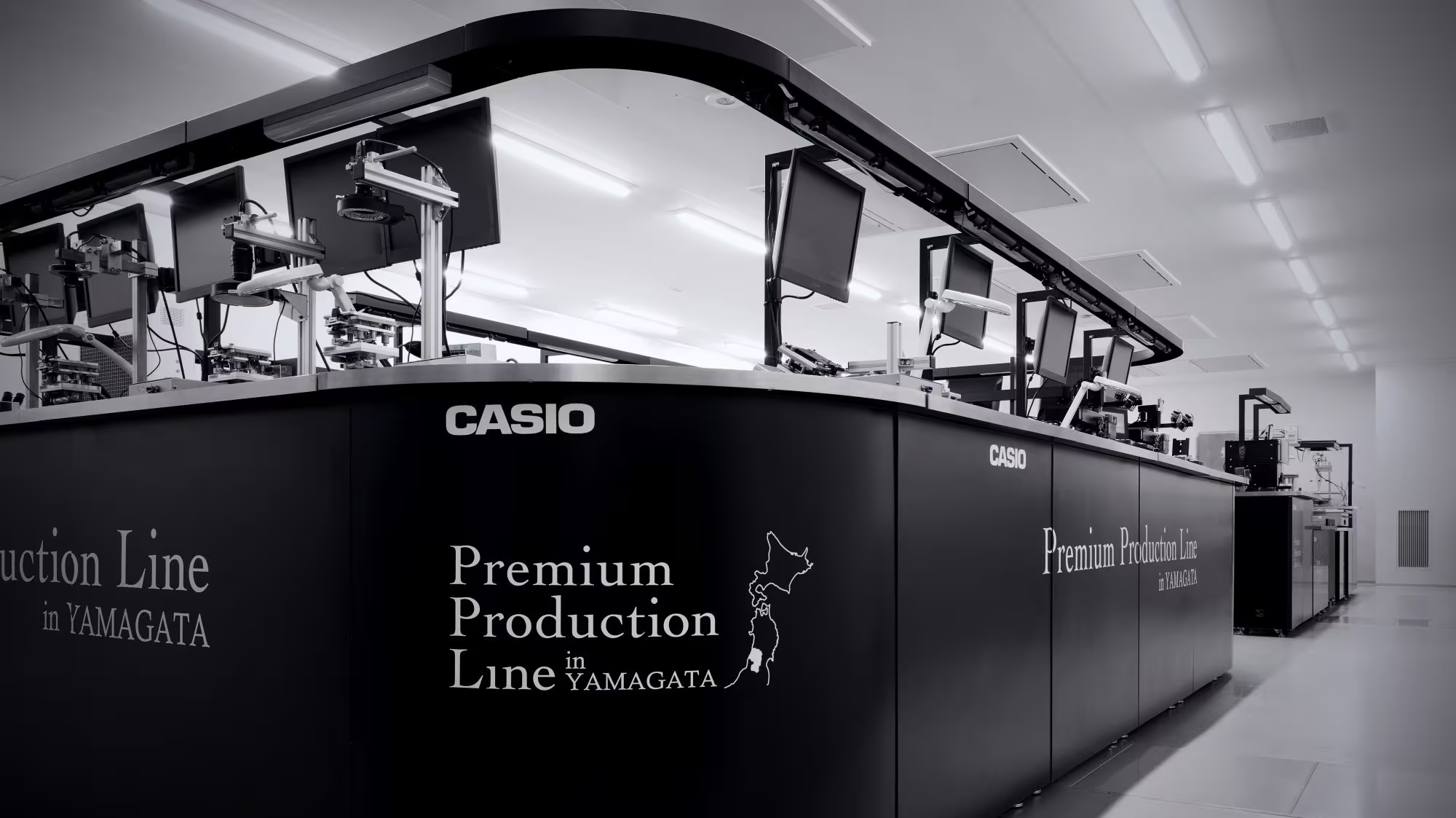
4. Can Automation and Craftsmanship Coexist?
Despite the concerns surrounding automation, it is important to note that many luxury watch brands are embracing a hybrid approach, where automation and traditional craftsmanship can complement each other. Automation can handle certain tasks, such as mass-producing components and ensuring consistent quality, while highly skilled artisans focus on more complex and artistic tasks. This balance allows watchmakers to preserve the precision and efficiency offered by machines, while still maintaining the uniqueness and artistry of handcrafted elements.
a. Enhanced Precision with Human Oversight
In some cases, automated production lines are integrated with human oversight, where skilled craftsmen supervise the machine’s output and step in when necessary to make adjustments. For example, certain components may be automated, but the final assembly or finishing touches—such as polishing, engraving, and fine adjustments to the movement—are still done by hand.
b. Increased Focus on Customization and Personalization
Another way that automation can coexist with traditional craftsmanship is through the creation of highly customized or bespoke timepieces. While automation can streamline the production of basic components, luxury watch brands are increasingly offering customization options that allow customers to personalize their timepieces. This process often involves handcrafting certain elements, such as the engraving on the case back, the selection of materials, or the design of the dial.
In this way, the use of automation for certain parts of the process allows for greater efficiency in production, while still maintaining the uniqueness of each individual timepiece.
5. Conclusion
The rise of automated production in the watchmaking industry has undoubtedly changed the way watches are made, offering efficiency, precision, and reduced costs. However, it also raises important questions about the future of fine craftsmanship and the uniqueness of high-end timepieces.
While automation can enhance the consistency and accuracy of watch components, it may also lead to a loss of the personal touch and artistic expression that defines traditional watchmaking. That said, many watchmakers are embracing a hybrid approach, where automation and craftsmanship can coexist, ensuring that the best aspects of both worlds are preserved.
Ultimately, the future of watchmaking will likely involve a balance between modern efficiency and traditional artistry, with the human touch remaining at the heart of the finest timepieces. It’s not a question of whether automation will take over, but how it can be used to enhance rather than replace the craftsmanship that has made watchmaking a revered art form for centuries.



